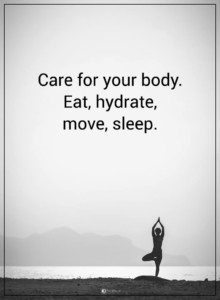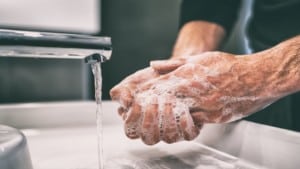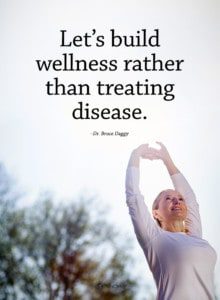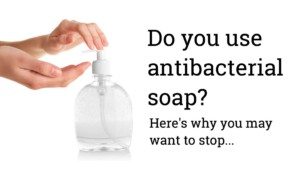How many times did your parents remind you as a child about washing your hands? For some odd reason, most kids have an aversion to soap and water. Sometimes, it’s all we can do to get them to use hand sanitizer.
Did you know that unwashed hands are the main reason that harmful germs are spread, especially in the health field? It wasn’t until the early 1800s that the medical community realized that hand washing was critical to their patients’ well-being. Today, the practice has evolved into complete scrubbing with soap and antibacterial agents with each procedure.
Is washing your hands a standard in your household? When is it essential to wash your hands, and how? Most reasons for proper hand hygiene are common sense. You probably already teach your children about washing their hands before eating and after going to the restroom.
Everyone should scrub up after being outside, touching a pet, sneezing, coughing, or caring for a sick person. Once it becomes routine, your family won’t need reminding as often.
Although hand sanitizer was not meant as a replacement for proper hand hygiene, it is useful when soap and water aren’t available. When you rub it on your hands, experts say it is a temporary fix that isn’t complete cleaning. Like a lot of people, perhaps you like to scrub your hands and finish with a sanitizer.
When you visit public restrooms, you will see the mandatory signage for employees to wash their hands before returning to work. It’s revolting and unacceptable to see anyone leave the bathroom and not wash their hands, especially restaurant employees. Reports and routine inspections reveal that microscopic fecal matter is one of the primary food contaminants, and it’s from unwashed hands.
10 Hand Sanitizer and Handwashing Tips
To teach your children proper hand hygiene habits, remember to be an excellent role model. What’s the best way to do it? Remember, these ten-hand sanitizer uses and handwashing tips that your family should never ignore.
1. Follow the Lead of Your Health Care Professionals
Government health guidelines require all healthcare workers to follow strict handwashing and hand sanitizer procedures. The next time you have an office visit, notice that these professionals will wash their hands before and after treating you. Follow their lead and encourage your family to scrub their hands often, especially after activities and to come in from outside.
Never assume that just because you haven’t done anything around the house that your hands are clean. You may not have visible dirt on your hands, but the microbes are there. Before you open your refrigerator or cabinets, wash your hands thoroughly with soap and water and insist on the kids doing likewise.
2. Soap Plus Water Equals Clean
Like your wise grandmother always told you, there is no substitute for good old-fashioned soap and water. Hand sanitizer, which appeared on the market in the late 1960s, was intended as a last resort and not a replacement. Health care professionals also recommend these alcohol-based sanitizers after a complete hand washing.
As much as possible, use soap and water when it’s available. Some kids and even adults get in a hurry and may skip the soap. Remind your kids to use plenty of soap and water and use sanitizer when necessary.
3. Not All Soaps Are Created Equally
When you think of clean hands, you probably expect that they are free of bacteria. Initially made for medical purposes, antibacterial soaps are popular items found in supermarkets. Are they the best soap to buy for your family?
Before you reach for that antibacterial soap in the health and beauty aisle, do some research. Did you know that many of these soaps kill beneficial bacteria on your skin, as well as the harmful ones? Many experts recommend that you choose an ordinary strength soap to prevent this from happening.
4. Follow and Teach Proper Hand Washing Techniques
The next time you see your children washing their hands, notice how they do it. Many kids are in a rush and do a quick splash and dry, often ignoring the soap. Unfortunately, you may see adults doing the same, and such negligence can make others sick.
Using age-appropriate explanations, show your kids how to wash their hands correctly. Please encourage them to use enough soap to make an efficient lather and to scrub their hands while singing the Happy Birthday song, which is about twenty seconds.
Show the children how to wash both sides of their hands, between fingers, and their nails. Afterward, see that they know how to rinse them thoroughly with warm water and dry them completely. They can also follow with hand sanitizer for an extra boost.
5. Learn How to Avoid Re-Contamination
If you turn on the faucet with unclean hands and later turn them off, you are contaminating your hands again. Instead, use your elbow or a clean paper towel to turn off the taps. After you wash your hands in a public restroom, use your arm or another cloth to open the door.
Any surface you touch at home or in public is susceptible to potentially harmful microbes. In restaurants or other public places, consider using sanitizer for your hands and sanitizing wipes for seats and tables. Carry these handy wipes in your car or your purse for quick cleaning of your hands after touching something.
6. Give Your Hands a Little TLC
Those who must wash their hands frequently, such as medical or food service employees, often battle dry, cracked skin. Too much exposure to water robs your hands of natural oils that keep your skin moisturized and hydrated.
If you have sensitive skin, follow up your handwashing with a moisturizer that is rich in natural emollients, like shea butter or aloe vera. Use hand sanitizers that are formulated with a moisturizer. Talk to your healthcare professional if your sensitive skin stays irritated, or you think that you may have a skin allergy.
 7. Clean Hands 4-1-1
7. Clean Hands 4-1-1
Have you ever been in the car or outdoors and didn’t have access to soap and water for your hands? Fortunately, hand sanitizer can be a temporary fix. Keep a container in your car and encourage your family to keep travel size bottles with them just in case.
Choose a brand that is at least 60% alcohol, squirt a dollop in your palm, and rub it into both sides of your hands and between your fingers. Remember that even the most expensive sanitizer will not kill every microbe. You should still wash your hands thoroughly with soap and water as soon as it’s available.
If your hands are visibly dirty, sanitizers probably won’t do an excellent job at cleaning them. Greasy hands also reduce the product’s efficiency. However, do what you must in a pinch.
8. Use a Nail Brush
What could be more unsightly than dirty fingernails? Even if your hands are sparkling clean, grime under your nails is still a recipe for contamination. Borrow a practice from the medical field and buy an inexpensive nail brush, available at most department stores and pharmacies.
These stiff-bristle brushes have a comfortable handle, and you use them to scrub in and outside of your fingernails. Use them with soap and water and replace them often or when they look worn. Also, teach your children how to trim and clean out their nails adequately.
9. Gloves Don’t Replace Washing Your Hands
Do you wear gloves for gardening or other chores around the house? Realize that gloves offer some physical protection to your hands, but they are not a handwashing substitute. Bacteria can still live in your work gloves, and you need to scrub it off your hands when your work is done.
If you are caring for a sick loved one or are using disposable gloves for safety reasons, be sure not to reuse the gloves. To keep from contaminating your hands, learn the proper techniques of removing gloves without touching your hands with the outsides. Wash your hands before and after you use medical gloves.
10. Common Germ Hideouts to Remember
How many times have you insisted that your children wash their hands and you hear them whine that they didn’t touch anything dirty? Some of the most innocent things around your house are often a haven for illness-causing microbes. While regularly sanitizing the items is recommended, it’s still a good idea to hit the handwashing sink after touching them.
Electronics and remote controls are notorious for harboring germs and viruses. Remind your kids to scrub their hands after using them, especially in hotels or restaurants. When you are on the go or even working around your house, your cell phone and other mobile devices will attract germs that you don’t want to spread.

Final Thoughts on Staying Clean with Hand Sanitizer and Proper Handwashing
As hard as you may try, you can’t completely erase 100% of every germ and virus from your hands. However, when you and your family practice proper handwashing techniques, you know that you are doing everything possible to ward off potential illnesses and infections. When you team up with soap, water, and hand sanitizer, your cleanliness arsenal is complete.
The post 10 Hand Sanitizer Use and Handwashing Tips to Never Ignore appeared first on Power of Positivity: Positive Thinking & Attitude.
【Top 10 Malaysia & Singapore Most Beautiful Girls】Have you follow?

